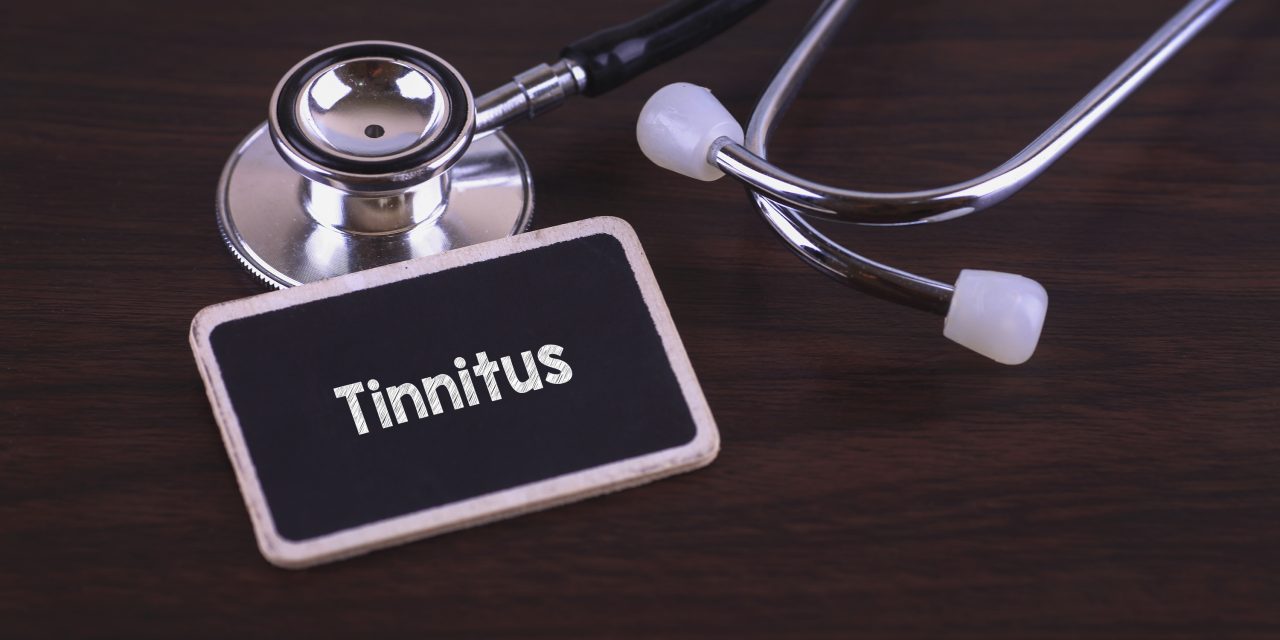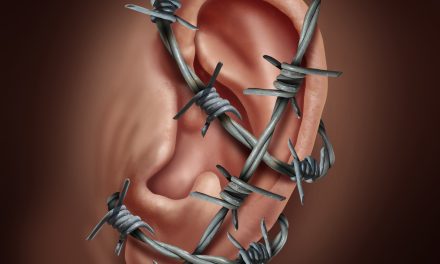Pulsatile tinnitus, a condition characterized by rhythmic noises in the ear that often align with the individual’s heartbeat, can be a distressing and life-altering experience. The constant need to cope with these unwelcome sounds can lead to frustration and negatively impact daily activities. Fortunately, there are various approaches to manage and potentially cure this annoying condition.

A proper understanding of pulsatile tinnitus is essential before taking any steps toward its treatment. The underlying causes of this condition might include increased blood flow due to strenuous physical activities, abnormal blood vessels near the ear, or the presence of a treatable condition such as high blood pressure. Identifying the root cause is crucial to determining the best course of treatment in each individual case, which may include medical interventions, lifestyle modifications, or a combination of both.
There has been an ongoing effort to advance research and develop innovative treatments to alleviate the effects of pulsatile tinnitus. While some cases can be cured, others require a more sustainable approach to management through various support and resources, such as patient communities and coping strategies. Being up-to-date with the latest developments in the field can prove to be beneficial for individuals struggling with this condition.
Key Takeaways
- Understanding the causative factors of pulsatile tinnitus is crucial for determining effective treatments
- Treatment options may include medical interventions, lifestyle modifications, or a combination of both
- Ongoing research and support resources can play a prominent role in managing and potentially curing the condition
Understanding Pulsatile Tinnitus
Pulsatile tinnitus is a specific type of tinnitus characterized by the perception of rhythmic noises in the ear, usually in sync with the individual’s heartbeat. This distinctive type of tinnitus can be objective (when the sound is audible to others) or subjective (only perceptible to the individual experiencing it).
Causes of Pulsatile Tinnitus
There are several potential causes of pulsatile tinnitus, and identifying the underlying cause is crucial for effective treatment. Here are some common causes:
- Blood flow abnormalities: Issues in blood vessels, such as turbulence, increased blood flow, or irregular blood vessel shape, can lead to pulsatile tinnitus.
- Eustachian tube dysfunction: The Eustachian tubes connect the middle ear to the nasopharynx, and any dysfunction can result in tinnitus perception.
- Muscle spasms: Involuntary contractions around the ear, such as in the stapedial or tensor tympani muscles, can cause pulsatile tinnitus.
- Benign intracranial hypertension: Increased pressure within the skull without an apparent cause can result in pulsatile tinnitus.
- Ear infections: Chronic or acute infections in the middle ear can impact the auditory nerve and cause tinnitus.
It is essential to consult a medical professional for proper diagnosis and treatment for pulsatile tinnitus, as the causes can vary significantly.
Diagnosis and Evaluation
Thorough evaluation and diagnostic tests play a crucial role in determining the cause of pulsatile tinnitus. Some common diagnostic procedures include:
- Physical examination: A thorough examination of the ear, neck, and head.
- Audiometry: Evaluation of hearing ability and possible hearing loss.
- Imaging studies: CT scans, MRI scans, and Doppler ultrasound to analyze blood flow and visualize any abnormalities.
- Blood tests: To identify any underlying health conditions.
Treatment Options
Treatment for pulsatile tinnitus depends on the root cause and may involve various approaches, such as:
- Medications: Prescription or over-the-counter medications to address infections or other underlying conditions.
- Lifestyle modifications: Reducing caffeine intake, quitting smoking, or practicing stress-relief techniques.
- Sound therapy: Masking pulsatile tinnitus with white noise machines or hearing aids.
- Surgical intervention: In rare cases, surgical procedures may be necessary to correct blood flow abnormalities or other structural issues.
Ultimately, it is essential to work with a healthcare provider to identify the underlying cause of pulsatile tinnitus and develop an appropriate treatment plan.
Diagnosis of Pulsatile Tinnitus
Medical History Assessment
The first step in diagnosing pulsatile tinnitus is a thorough medical history assessment. It’s essential to gather information about the patient’s overall health, previous illnesses, medications, and lifestyle habits. The healthcare professional should ask about the onset, duration, and severity of the tinnitus, as well as any associated symptoms like hearing loss, dizziness, or ear fullness.
Physical Examination
Following the medical history assessment, a physical examination of the patient is performed. The examination should focus on the patient’s head, neck, and ears, including:
- Inspecting the external ear for abnormalities
- Evaluating the tympanic membrane using an otoscope
- Palpating the neck for masses or enlarged blood vessels
- Checking for any signs of infection, inflammation, or abnormal growths
Audiological Tests
Audiological tests are conducted to assess the patient’s hearing and tinnitus. These tests may include:
- Pure-tone audiometry: This test measures the patient’s hearing thresholds at various frequencies to determine the extent of hearing loss, if any.
- Tympanometry: This test evaluates the function of the middle ear and helps identify any abnormalities related to the eardrum or the Eustachian tubes.
- Otoacoustic emissions (OAEs): This test measures the sounds produced by the inner ear in response to sound stimuli to assess cochlear function.
Imaging Techniques
Imaging techniques are valuable in diagnosing the underlying cause of pulsatile tinnitus. Some commonly used methods are:
- Computed tomography (CT) scan: This technique uses X-rays to create detailed images of the head and neck, helping identify any structural abnormalities.
- Magnetic resonance imaging (MRI): MRI uses a magnetic field and radio waves to create detailed images of the soft tissues in the head and neck, providing a better view of blood vessels and nerves.
- Magnetic resonance angiography (MRA): This imaging technique is a specialized type of MRI that focuses on the blood vessels. It helps detect any vascular abnormalities contributing to pulsatile tinnitus.
By carefully performing these diagnostic procedures, healthcare professionals can better understand the causes of pulsatile tinnitus and determine the most effective treatment plan for the individual patient.
Treatment Approaches
Medical Treatments
Medical treatments for pulsatile tinnitus typically focus on addressing the underlying cause of the condition. Some common treatments include:
- Blood pressure management: High blood pressure can exacerbate pulsatile tinnitus. Doctors may prescribe medications to lower blood pressure, such as beta-blockers or diuretics.
- Cholesterol-lowering medications: If high cholesterol levels are identified as a source of pulsatile tinnitus, doctors may prescribe statins to help lower cholesterol levels.
- Antibiotic therapy: In cases where an infection is causing pulsatile tinnitus, doctors may prescribe antibiotics to clear up the infection.
Surgical Options
Surgical options for pulsatile tinnitus may be considered when conservative treatments have proven ineffective, or when the underlying cause of the condition can be specifically addressed through surgery. Some possible surgical approaches include:
- Stenting: In cases where a narrowed blood vessel is causing the condition, a small tube called a stent can be inserted to widen the affected blood vessel and alleviate tinnitus symptoms.
- Glomus tumor removal: If a glomus tumor is the source of the patient’s pulsatile tinnitus, surgical removal of the tumor may provide relief from symptoms.
Sound Therapy
Sound therapy involves the use of external sounds to help mask, or cover up, the annoyance caused by tinnitus. There are various sound therapy options available, such as:
- White noise machines: These devices produce a continuous, nonintrusive sound, which can help mask the bothersome sound of pulsatile tinnitus.
- Hearing aids: Individuals with both tinnitus and hearing loss may find relief through the use of hearing aids, which can amplify external sounds and diminish the perception of tinnitus.
Behavioral Therapies
Behavioral therapies focus on techniques to help individuals cope with the negative emotions and stress associated with pulsatile tinnitus. Some effective behavioral therapy options include:
- Cognitive-behavioral therapy (CBT): CBT seeks to change negative thought patterns and behaviors related to tinnitus, helping individuals better cope with the condition.
- Relaxation techniques: Deep breathing exercises, progressive muscle relaxation, and mindfulness meditation are some relaxation techniques that can help alleviate the stress and anxiety triggered by pulsatile tinnitus.
Lifestyle Modifications and Home Remedies
Dietary Changes
Making dietary changes can help alleviate symptoms of pulsatile tinnitus. Consuming a well-balanced diet rich in vitamins and minerals is essential for overall ear health. Some helpful dietary modifications include:
- Reducing intake of salt, which can help improve blood circulation.
- Consuming foods rich in vitamin B12, such as fish, eggs, and dairy products.
- Drinking plenty of water to keep the body well-hydrated.
- Limiting consumption of caffeine and alcohol, as these can exacerbate tinnitus symptoms.
Exercise and Relaxation
Engaging in regular physical activity and relaxation techniques can aid in reducing pulsatile tinnitus symptoms. Exercise helps improve blood circulation and relieve stress, both of which can benefit sufferers of pulsatile tinnitus. Suggested activities include:
- Practicing yoga or meditation for stress relief and relaxation.
- Participating in regular cardiovascular exercises such as walking, biking, or swimming.
- Utilizing deep-breathing techniques to ease stress levels.
Sleep Hygiene
Maintaining good sleep hygiene is crucial for managing pulsatile tinnitus symptoms. A proper sleep routine can aid in reducing stress and fatigue, which tend to exacerbate tinnitus symptoms. Some sleep hygiene tips include:
- Establishing a consistent sleep schedule by going to bed and waking up at the same time every day.
- Creating a calm and quiet sleep environment, free from distractions.
- Avoiding stimulants such as caffeine or nicotine close to bedtime.
- Considering the use of white noise machines to mask tinnitus sounds during the night.
Avoiding Triggers
Identifying and avoiding certain triggers can help reduce pulsatile tinnitus symptoms. Some common triggers may include loud noises, bright lights, or stressors. Some suggestions for avoiding triggers are:
- Wearing earplugs or noise-canceling earphones when exposed to loud sounds.
- Dimming the lights or using blue light filters on electronic devices to reduce eye strain and light sensitivity.
- Managing stress levels through exercise, meditation, or seeking professional help.
By incorporating these lifestyle modifications and home remedies into daily routines, individuals with pulsatile tinnitus may experience a reduction in their symptoms and improve their overall quality of life.
Ongoing Research and Advances
Drug Therapies
There is a growing interest in developing drug therapies to address pulsatile tinnitus. While no specific medications have been approved to treat this condition, some promising research is being conducted. For example, various vasodilator medications are being studied for their potential to alleviate pulsatile tinnitus by increasing blood flow through narrowed vessels. Additionally, neurological medications are being assessed for their ability to modify the nervous system’s response to the pulsatile sounds.
It is worth noting that many of the drug therapies under investigation are still in the experimental stage and require further research to determine their safety and effectiveness.
Technological Innovations
Advancements in technology could offer new treatments for pulsatile tinnitus. One area of innovation is in medical imaging, which can help identify underlying causes of the condition more accurately. For instance, high-resolution MRI and CT angiography can provide detailed images of blood vessels and possible obstructions, leading to more targeted treatments.
Another area of research is noninvasive neuromodulation, which seeks to alter the activity of the brain’s auditory processing centers. Treatments such as transcranial magnetic stimulation (TMS) have shown potential in addressing subjective tinnitus, and there is hope that ongoing studies will reveal similar benefits for pulsatile tinnitus patients.
Finally, wearable devices designed to help manage tinnitus symptoms are gaining traction. These devices use subtle sound therapy, masking, or a combination of both to distract the brain from the persistent pulsating noise. While these technologies are still relatively new and may not directly target pulsatile tinnitus, they can provide relief to some individuals.
In conclusion, ongoing research and advances in both drug therapies and technology offer hope for future interventions that can effectively treat or manage pulsatile tinnitus. For now, it is crucial to stay updated with new findings and innovative therapies as they become available.
Support and Resources
Support Groups
Joining a support group can be incredibly helpful for those suffering from pulsatile tinnitus. These groups provide a safe space to share experiences, coping strategies, and emotional support. Some popular support groups include:
- American Tinnitus Association (ATA): Offers online forums and local support groups across the United States.
- British Tinnitus Association (BTA): Provides support for UK-based individuals through local groups and online communities.
Professional Counseling
Considering professional counseling is another option for individuals struggling with the emotional impact of tinnitus. Licensed therapists and counselors can help you:
- Manage stress and anxiety associated with tinnitus.
- Develop healthy coping strategies.
- Improve communication with loved ones about your condition.
To find a counselor who specializes in tinnitus, reach out to your healthcare provider for recommendations or utilize online directories like the Association for Contextual Behavioral Science or the American Psychological Association.
Educational Material
Staying informed and educated is crucial in managing pulsatile tinnitus effectively. Here are a few resources for up-to-date, reliable information:
| Resource | Description |
|---|---|
| Tinnitus Hub | Offers in-depth information on tinnitus, treatment options, and coping strategies. Includes a podcast and active online forum. |
| Tinnitus Talk | An online forum for discussing personal experiences with tinnitus and sharing advice on various treatments. |
| British Tinnitus Association | Provides extensive educational resources, including research updates, articles, and booklets on managing tinnitus. |
Utilize these educational materials to learn more about pulsatile tinnitus and stay informed on the latest research and treatment options. By accessing support, seeking professional help, and staying educated, individuals can better manage their symptoms and improve their overall quality of life.
Frequently Asked Questions
What underlying conditions may lead to pulsatile tinnitus?
Pulsatile tinnitus may be caused by a variety of underlying conditions. Some common causes include high blood pressure, turbulent blood flow, glomus tumors, and abnormal blood vessels. In some cases, an underlying medical condition may not be identifiable.
Can changes in lifestyle alleviate symptoms of pulsatile tinnitus?
Yes, lifestyle changes can play a role in alleviating symptoms of pulsatile tinnitus. Implementing a healthy diet, regular exercise, and stress management techniques may help reduce high blood pressure and improve overall vascular health, potentially decreasing pulsatile tinnitus symptoms.
What medical treatments are available for pulsatile tinnitus?
Medical treatments for pulsatile tinnitus depend on the underlying cause. If an identifiable cause is found, it may be treated with medication, surgery, or other interventions. In some cases, treating the underlying cause may alleviate or completely resolve the pulsatile tinnitus. If no cause is found, symptom management, such as noise suppression techniques or counseling on coping strategies, may be recommended.
Are there any natural remedies proven to reduce pulsatile tinnitus symptoms?
There are limited scientific studies on the effectiveness of natural remedies for pulsatile tinnitus. However, some individuals with pulsatile tinnitus have reported improvement in their symptoms after implementing relaxation techniques, such as deep breathing, mindfulness, or meditation. It is essential to consult with a healthcare professional before trying alternative treatments.
How does body or head position influence pulsatile tinnitus, and what can be done about it?
In some cases, pulsatile tinnitus may be influenced by body or head position. Changing positions, such as lying down or rotating the head, can affect the blood flow in the region and potentially alter the sound. If specific positions exacerbate the symptoms, it may be beneficial to avoid those positions when possible. Consulting with a healthcare professional can help determine if specific exercises or therapies may help alleviate position-related pulsatile tinnitus.
Is there a risk associated with pulsatile tinnitus, and when should one seek medical attention?
Pulsatile tinnitus itself may not pose a significant risk, but it can be a symptom of an underlying condition that requires medical intervention. Therefore, individuals experiencing pulsatile tinnitus should seek medical attention, especially if the symptoms are persistent, worsening, or accompanied by other symptoms such as severe headaches, dizziness, or sudden hearing loss. Early diagnosis and treatment of the underlying condition may help prevent potential complications and improve overall health.

















